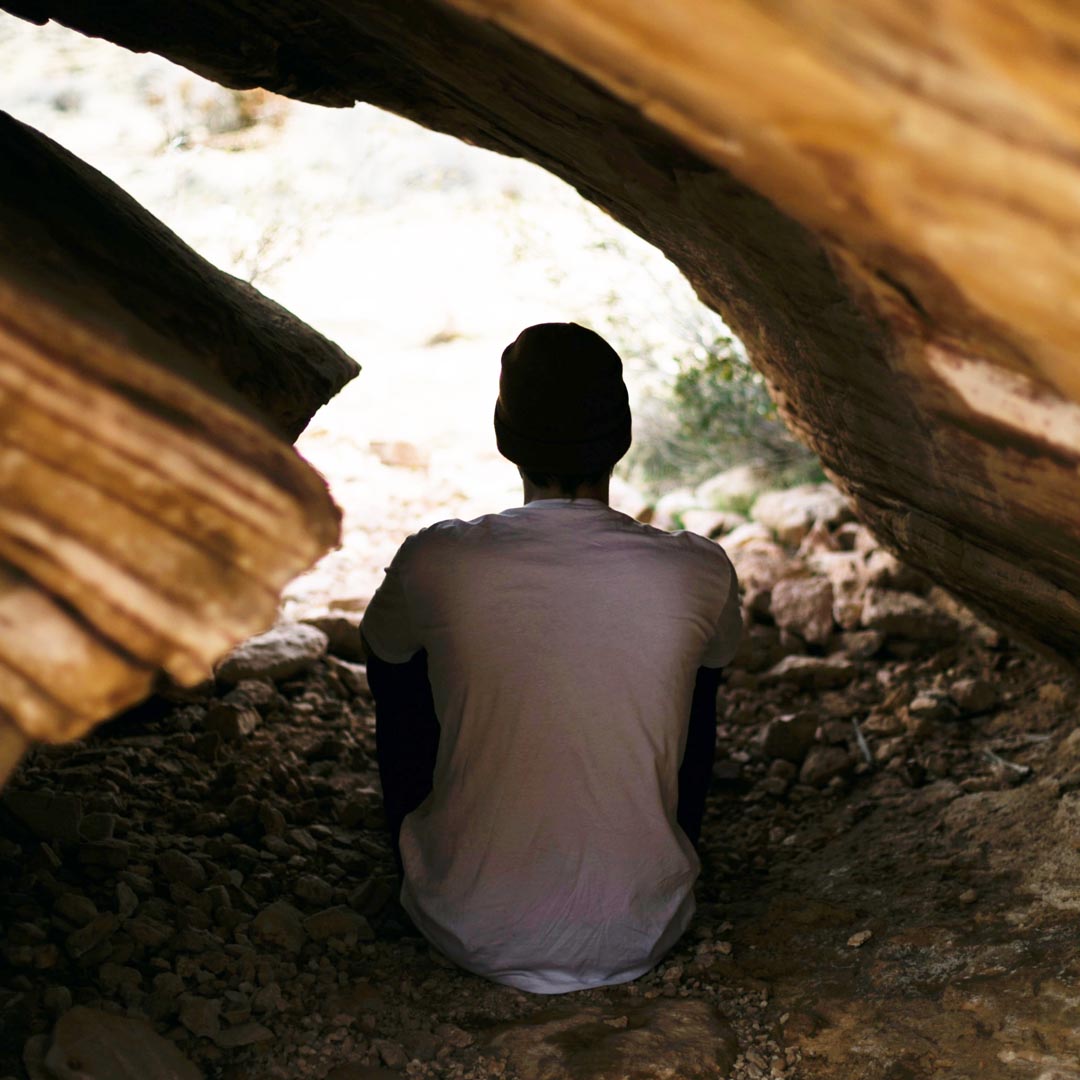Perhaps you have read recently about a Christian musician who took to social media to share that he had lost his faith. This isn’t an isolated incident, as several months ago another fairly popular Christian singer did the same. We also saw this not too long ago with a popular Christian author.
This had really troubled me and I spent quite a bit of time considering why. I was troubled by the use of the platform of fame to try to influence others from their faith. I was troubled by the complete reversal of what appeared to be a lifetime of their profession of faith. I took the time to read through the things this most recent musician wrote and took several things away from it.
One thing appeared obvious to me: trouble can come when we begin to be the focus rather than God. It has to be very difficult as a popular musician or author to stay grounded. I can’t say that pride was one reason any of these figures left their faith, but it should always be on our minds to consider why we do things and who gets the glory.
That observation was minor. One of the biggest things that I took was this statement:
“I grew up in a loving Christian home. My dad was a pastor (and still is), and as far back as I can remember, life was all about church. It was our community. It was our family.
It feels important to point out that church wasn’t something we went to once a week- it was more like something we came home to as often as possible, after bravely venturing out into “the world” when necessary. It wasn’t a part of our life. It was our life.
When you grow up in a community that holds a shared belief, and that shared belief is so incredibly central to everything, you simply adopt it. Everyone I was close to believed in God, accepted Jesus into their hearts, prayed for signs and wonders, and participated in church, youth groups, conferences, and ministry. So I did too.”
As I read these things, I see myself. I see our church. And I love this about our church. This church is my family. Church is what I come home to after being out in the world. And my life has been influenced greatly by those who I call my family. But this man hit a nail on the head that began my mind thinking about the word and the concept of being ANCHORED.
Meriam Webster’s Dictionary says an Anchor is:
- a device usually of metal attached to a ship or boat by a cable and cast overboard to hold it in a particular place by means of a fluke that digs into the bottom
What is the purpose of an anchor? An anchor is a device, normally made of metal, used to connect a vessel to the bed of a body of water to prevent the craft from drifting due to wind or current. The word derives from Latin ancora, which itself comes from the Greek ἄγκυρα (ankura). Anchors can either be temporary or permanent.
How Anchors Work: When an anchor penetrates the surface of the seabed, suction generates resistance, created by the bottom material plus the weight of the material above the anchor. As the boat pulls on the anchor rode, the anchor digs in deeper, creating additional resistance.
We all have a picture in our mind of what an anchor looks like and probably even it’s function. But maybe we forget something about an anchor:
An anchor’s purpose is to keep a boat from drifting away, but, the anchor does not stop waves.
I would consider waves in this life as those things that come up that challenge our faith, our expectations of and from God, our understanding of doctrine, our opinions of the “ideals” of life.
Mormon 2:
45 For behold, the Spirit of the Lord hath already ceased to strive with their fathers, and they are without Christ and God in the world, and they are driven about as chaff before the wind.
46 They were once a delightsome people, and they had Christ for their Shepherd; yea, they were led even by God, the Father.
47 But now, behold they are led about by Satan, even as chaff is driven before the wind, or as a vessel is tossed about upon the waves, without sail or anchor, or without anything wherewith to steer her; and even as she is, so are they.
Inevitably, when someone makes the declaration that they no longer believe in God and have lost their faith, we begin to ask- what happened that made them lose it? But perhaps what we need to be considering- each of us- is this: Why do we have faith in the first place?
Perhaps one reason this man came to the point where he completely walked away was that he hadn’t had those experiences himself that convinced him of the existence of God. Relying upon the faith, experiences and strengths of others is not enough to keep us anchored to God. It doesn’t hold us from drifting, because it lacks what makes God, God- personal interaction.
It is important that we speak of Christ, of our experiences and testimonies, but the focus of this is to: 1. Bring glory to God and 2. Encourage others to seek those experiences for themselves, based on the truth that if God can do it for one, He can do it for others.
I spent some time thinking back on when I can say I truly began to believe in God. I grew up going to church, youth groups, reunions, youth camp, and church activities. I grew up participating in Sunday school, sitting through services, praying over my food. But as I thought about it, I realized it wasn’t until I was in my early 20’s that I actually had an experience where God moved in my life which became the basis for my anchored belief. Now, that isn’t to say that everything that happened in my life surrounding and including church was of no value. In truth, the fact that I took the time to sincerely approach God was because of that lifetime of influence. But up until that interaction with God, He was simply a concept I had learned of and not a living God to me.
I’m not the only one.
Enos 1: 1 Behold, it came to pass that I, Enos, knowing my father, that he was a just man: for he taught me in his language, and also in the nurture and admonition of the Lord.
2 And blessed be the name of my God for it.
3 And I will tell you of the wrestle which I had before God, before that I received a remission of my sins;
4 Behold I went to hunt beasts in the forest; and the words which I had often heard my father speak, concerning eternal life, and the joy of the saints, and the words of my father sunk deep into my heart.
5 And my soul hungered; and I kneeled down before my Maker, and I cried unto him in mighty prayer and supplication, for mine own soul;
6 And all the day long did I cry unto him; yea, and when the night came, I did still raise my voice high, that it reached the heavens.
7 And there came a voice unto me saying, Enos, thy sins are forgiven thee, and thou shalt be blessed.
8 And I, Enos, knew that God could not lie; wherefore, my guilt was swept away.
9 And I saith, Lord, how is it done?
10 And he saith unto me, because of thy faith in Christ, whom thou hast not heard nor seen.
So ask yourself: when did God become real to me? Or has He yet? If not, have you heard and seen enough in your life to consider that He is able to prove Himself to you? Are you willing to try?
Consider these 2 testimonies:
“I have always believed in God. I was raised catholic, I was baptized as an infant and completed all the necessary classes required to be able to participate fully in the sacraments of the Catholic Church. Growing up, I didn’t give my faith much thought. I went to church with my mother and siblings until I was a teenager when we stopped attending regularly as a family. I was part of a youth group at my Parrish and enjoyed fellowship. I remember one particular event that changed my life forever.
Our youth group was meeting at church and a young person asked for a blessing. The priest had all the kids in attendance place their hands on this person and told us to pray for a blessing. I felt very uncomfortable doing this although I wasn’t completely sure why. From that moment I began to question if God was actively working in that church, I was quite confused.
I decided to petition God to reveal himself in my life. After praying harder than I had ever prayed before, and what seemed a lifetime to a 17 year old, I had this experience:
I was in my room ready for bed and again seeking God I prayed: “I know you are real, I believe in you, I can’t find you here on earth. Lead me Lord, show me where you are”. As I prayed, I felt a powerful presence I had never felt before. I looked to see what was there. Up near the ceiling, in the corner of my room, was the face of Jesus looking down at me. I looked up at this visage who was looking down at me, and was overcome with emotion, peace, and joy.
God had heard my plea and answered my prayer in a way I could have never imagined.
This excerpt is just a snippet of the whole event but it was the first step in the journey that grounded my faith and led me to where and who I am today.
After having found the true church and becoming a member of it, I wanted to share this wonderful discovery with my friends and family. I was met with disinterest at the least and active rebellion at the worst. I was not and am not dissuaded because I knew then and know now without a doubt that God heard and answered my prayer.
I believe strongly that it is extremely important to have a relationship with God and not unreasonable to ask Him for a personal experience to ground that relationship and strengthen your faith.
He is faithful.
And if ye shall ask with a sincere heart, and with real intent, having faith in Christ, and he will manifest the truth of it unto you by the power of the Holy Ghost and by the power of the Holy Ghost; ye may know the truth of all things. Moroni 10:5”
- Chris Moser
“I was blessed to be born into a family which gave me a good foundation of understanding and knowledge about God and the gospel. As a child I never questioned the existence of God, nor the truth of the gospel I had been taught. My family gave me a strong sense of family/church duty, obligations and expected behavior as well as a clear moral compass, not that I always heeded it. Unfortunately, the result was that I made great efforts to hide my personal sins, failures and doubts.
One experience that I still remember which helped my immature faith was after the death of my father. I was 21 when my Dad died, and he hadn’t been a significant part of my life for most of my memory. However, shortly before he became ill, he had begun to try to restore the relationships with his family. Then, shortly after he was back in our lives, he died and was gone again. I struggled with this more than I realized at the time. I remember a specific night, a few days after the funeral when I was alone, laying in the back of my truck, looking up at the stars, and talking to God and crying. I don’t know how to explain what happened, but I felt a wave of comfort that wrapped me up. I felt as though I was being held and cradled like a little child in the arms of someone I couldn’t see. I had complete peace and knew that it was God. While the experience strengthened my belief in the existence of God, my relationship with Him was still lacking.
Although I had been baptized as a young teen, as a young man I knew that I needed to know the truth for myself instead of relying on the things I had been taught and began to study the scriptures and histories. This effort was not smooth and steady, but rather came in fits and starts as I would make efforts, then become complacent, then renew efforts but again get busy or lazy, etc. I made efforts to spend time in fasting and prayer, but still felt distant from God.
Over time, my intellectual knowledge increased, but my relationship with God wasn’t what it should be because I was continuing to try to run my life and often fell back into secret sins. It wasn’t until my late 20’s that a combination of physical and emotional trials finally brought me to a place of brokenness that God could finally reveal himself in my life. Days of depression, self-pity and self-loathing and nights of loneliness and tears brought me to where God knew I needed to be to allow Him to work in my life. When I truly and completely gave Him control of my life, He began to change my entire life and has greatly blessed me. It is often when I look back on my life that I see what God has done in growing my faith and bringing me closer to Him. His faithfulness to me despite my unfaithfulness to Him.
I still have a ways to go. I still struggle because I feel like I should be closer to Him. I can still get distracted by the shiny objects of the world. I want to hear His voice, to see the manifestations of the Spirit to a greater degree. But I realize now that it was during the times of my greatest struggles that my relationship with Him grew. It’s the experiences of the past that give me hope for the future, to trust Him for the future, to know that He has a plan and is in control.”
- Bob Hedrick
I chose to publish these testimonies because they come from 2 people who I admire for their faithful example. And yet in their own words, faith didn’t just happen.
So, once we consider the matter of having a faith in God, what do we do about the waves? Some things I thought about:
- Have you ever felt doubt concerning God, or the scriptures? What did you do about it?
- Have you ever been afraid to ask because you were afraid the answer would shake or disappoint you?
- Have you ever faked it (just went with the flow), because you were afraid of how you would be viewed by those around you?
One thing that I am so grateful for is that I have experienced a God that isn’t angry with my uncertainties. He doesn’t condemn me for having occasional doubts. He doesn’t curse me because I find my faith challenged. We, of course, know all about the story of Gideon. Think about that for a moment- it wasn’t like Gideon just upped and decided to lead an army against a world power. No, he was visited by an angel who told him about God’s plan. And yet, he had some doubts. Take note that God wasn’t upset by this. But one thing we cannot forget is that he made the effort to ask.
Faith that has never been tested is no faith at all. Faith isn’t absolute knowledge, but is also isn’t a belief absent some evidence. I have never seen God, but I have felt Him. I have never seen an angel but I have felt the moving of the Spirit. I have no idea how a prayer “gets” to God, but I have experienced those things I’ve asked about being directly and undeniably answered.
1 Peter 1:6 Wherein ye greatly rejoice, though now for a season, if need be, ye are in heaviness through manifold temptations:
7 That the trial of your faith, being much more precious than of gold that perisheth, though it be tried with fire, might be found unto praise and honour and glory at the appearing of Jesus Christ:
8 Whom having not seen, ye love; in whom, though now ye see him not, yet believing, ye rejoice with joy unspeakable and full of glory:
9 Receiving the end of your faith, even the salvation of your souls.
C.S. Lewis wrote about faith and doubts in his book Mere Christianity:
For example, my reason is perfectly convinced by good evidence that anesthetics do not smother me and that properly trained surgeons do not start operating until I am unconscious. But that does not alter the fact that when they have me down on the table and clap their horrible mask over my face, a mere childish panic begins inside me. I start thinking I am going to choke, and I am afraid they will start cutting me up before I am properly under. In other words, I lose my faith in anesthetics. It is not reason that is taking away my faith: on the contrary, my faith is based on reason. It is my imagination and emotions. The battle is between faith and reason on one side and emotion and imagination on the other.
This life is full of questions about God, many of which are based on emotion and human ideals. Let’s consider a couple that are frequently brought up (perhaps you have been challenged by these):
- If God is all loving, and all powerful, why is there evil in the world? Can he not do anything about it? Does He choose not to?
- Is the evil in the world a result of His desire to give us free will? Then what about famine and disease and floods and all the suffering that isn’t caused by humans and our free will?
- If God is so loving, why does He send people to hell?
- Why does God seem so angry in most of the Old Testament, and then all of a sudden he’s a loving father in the New Testament?
- Why does He say not to kill, but then instructs Israel to turn around and kill men, women and children to take the promised land?
- Why does God let Job suffer horrible things just to…win a bet with Satan?
- If God can do anything, can’t he forgive without someone dying?
Maybe you struggle with questions like these. As I look at these questions, I first feel like I have to separate the human emotion based on human ideals, and emotionless truths. Like C.S. Lewis wrote, it is our human emotion and imagination that often presents the real problem.
The acknowledgement of evil, suffering and pain requires the acknowledgement of good, happiness and joy. Afterall, how can we know what one is without the other as a basis? We know “hot” because we also know “cold.” We know “sweet” because we also know “sour.” There is no such thing as a one ended stick. Why don’t we ever hear people say- Why does God allow so much good in this world? For it surely must be there. So where does that come from?
Is God angry and not loving in the Old Testament? Is that what we find laid out throughout the experiences of those written there? Or do we just focus on those things that seem hard to our own emotions and ideals?
Does God condemn those He hasn’t warned? The Bible and Book of Mormon follow a specific group of people, not every nation of the world. We have no clue what things God may have done in the lives of others who may have chosen to turn their back on good. (1 Nephi 5:118-129)
For the sake of time I won’t go further, but one thing I do want to encourage you to do is not to sit on your doubts. Pray about them. Ask others. There are ministers who are more than willing to speak with you about these things.
- 3 Nephi 11:13 Bring ye all the tithes into the storehouse, that there may be meat in my house, and prove me now herewith, saith the Lord of hosts, if I will not open you the windows of heaven, and pour you out a blessing, that there shall not be room enough to receive it.
- 1 Nephi 1:65 And it came to pass that I, Nephi, said unto my father, I will go and do the things which the Lord hath commanded, for I know that the Lord giveth no commandments unto the children of men, save he shall prepare a way for them that they may accomplish the thing which he commandeth them.
- 1 Nephi 2:101 Wherefore, he prepareth a way to accomplish all his works among the children of men; for behold he hath all power unto the fulfilling of all his words.
The point of these last 3 scriptures is that God is willing to show Himself. One thing we have to remember is He also does require our sincere efforts.
I wrote this article in the hopes that you sit down and consider yourself. Why do you have faith? What experiences made God real? How have you been challenged? How to do you share these things? What are your doubts and what are you doing about them?
I welcome your thoughts, your questions and your own experiences as they relate to this topic. Please feel free to email me with them.
God bless each of you,
Elder Aadam Yates




